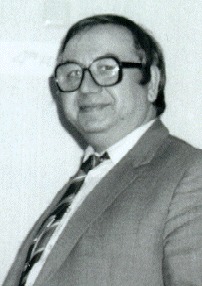09.06.2005
"Master makers". Igor Zaitsev

Could one restate for chess a well-known football maxim: 'If you win, you are a good player, if you lose, you have a bad coach'?
I think one cannot compare chess trainer and football coach. In my practice I used to work as a personal trainer, which means I occupied myself with analytical work. I have little experience with young chessplayers – I just helped some candidate masters becoming grandmasters... A trainer can give any instructions before the encounter, but the way the game develops always gets out of hand, and the player has to solve all the problems alone. It is particularly clear with strong players. They also have very strong personalities. One can help them only in the analytical way. Such kind of people has acquired certain immunity to outside pressure, obtrusion of certain psychological or behavioral manner; however, they can readily accept a chess advice.
An analyst of a strong chessplayer occupies himself only with the opening. However, even the strongest players have chess weaknesses that are still not outdated – perhaps correcting such weaknesses could be even more effective?
Of course a role of the assistant reduces to working with opening. However, the chessplayer improvement comes after a training of different kind. From time to time one has to turn over one's experience, to search the fundamental principles of the game. There are some dependences that we do not know yet. As there is an extremely fascinating playing element in chess, the search of general philosophical principles falls out of touch with a majority of people. The nature of chess still is not completely grasped. I know that in St. Petersburg there are some people, who are interested in this point of view, but on the whole, such research are in theirs’ infancy. Now the players take over.
In music there are not only composers, but also performers, and the performers naturally prevail. However, in chess this imbalance is even more noticeable! This is not right. Chess is many-sided, but no one would understand you, if you analyze and do not take part in the tournaments. A study of the chess laws in isolation of a practical, playing benefit meets no response within the chess community. Better to say, this is not remunerated. One can do it only for himself and earn his living with something else.
What kind of qualities does the chess trainer need?
It seems to me that I cannot answer this question. There are some coaches, who snatch up a boy or a girl out of the children’s environment. These people have an enviable intuition, they can predict future. I would never take the liberty and responsibility of diagnosing and determining which player what potential has. This work is very important. Moreover, I think that exactly this is a proper work of a trainer.
There are also methodologists. Mark Dvoretsky as a brilliant methodologist can take the hand of a student and make him reach a new summit. Further the analytical work of a matured player begins.
Is it necessary for a chess trainer to maintain a shape by playing in tournaments?
Unfortunately. Not only because a non-playing trainer is not taken seriously, but also because each tournament brings new ideas, enriches and changes a view on the game.
Is keeping the distance between trainer and student important?
I’ve always had purely friendly relationships. It seems to me that when you analyze together, you should do this as equals.
Do you think there is a certain age limit of starting to play seriously when one won’t achieve a serious success?
From the competitive point of view it exists for sure. However, I think that it is never too late to study chess, as well as music, especially if one takes it as a part of culture… At the age of 35 a chessplayer has an optimal proportion of knowledge and energy. Decline starts in a few years, caused by the lack of energy, then comes retreat and the end.
When Kasparov was young, I compared him to a volcano that has to act in geyser regime. He was seething with energy. However, even his energy has almost expired by the age of 40. The same can be said about Karpov. The reasons of decrease of the results are quite objective. However, the critical age itself is individual, some manage to change it somehow. For example, Korchnoi after 40-45 made a considerable progress – as if he was given injections! Or Beliavsky. Alexander Genrikhovich is devoted to chess and this devotion is rewarded. Manyplayersget scattered, but he has always been devoted to the game.
At what age, in your opinion, does the individuality of a chessplayer appear, and the style shape?
I think there are two main characteristics of a chessplayer. The first one is a level of play, the second one is a style. The style is concerned with purely individual understanding of chess. The level is concerned with a set of familiar positions, knowledge and experience. Style develops very early. 14-year-old Karpov showed peculiar skill of turning a complicated and messy middlegame into a calm ending, and ability to control the course of events. Tal could create turmoil on board from the very childhood, making his opponents squeeze their way surmounting the obstacles.
Which aspects influence the development of one's style, from your point of view? Can the influence of a trainer’s personality, of the first chess book be felt?
In my opinion the style develops from within. When a person finds a kind of a model concordant with his inner understanding of chess, he finds his own style.
Questions were asked by Misha Savinov.
This article is published with permission of Association of Chess Professionals
